Family petitions require certain documentation to prove the family relationship between the citizen/resident and the beneficiary. And, like other immigration processes, having your documents in order is fundamental for a successful process. So, today we will see what the I-130 petition is and how to file it.
At Zava Immigration Law Group, we know that your family’s future is at stake with an I-130 family petition. This makes the process extremely stressful, compounded by the complexities of the migration system. But do not despair. We are here to accompany you every step of the way. Contact us and bring your family petition to success.
Table of Contents
What is the I-130 petition?
The I-130 family petition is an application for alien relatives of U.S. citizens and residents who wish to obtain permanent residency. It establishes the existence of a family relationship between the two. Its filing or approval does not confer any immigration status or benefit.

How do I fill out the request?
Filling out the I-130 family petition correctly is essential to the success of your family petition. Therefore, here is a brief instruction on how to fill out your application:
Step 1: Complete Petitioner/Sponsor Information
In the first step of filing an I-130 family petition, the petitioner or sponsor must specify the family relationship he or she has with the beneficiary. In addition, certain personal information, such as name, date of birth, address, marital information, etc., must be included.
Step 2: Complete Beneficiary Information
Secondly, beginning in section 4 of the I-130 family petition, the beneficiary must detail his/her relationship to the petitioner/sponsor, including his/her personal information. It is extremely important to fill out this part carefully, as it will serve to establish the family relationship between the petitioner and the sponsor.
Step 3: Petitioner’s/Sponsor’s Statement
Once the family relationship and petitioner’s information has been established, the petitioner must provide a signed declaration in section 6 of the I-130 family petition. In it, he/she certifies under penalty of perjury that all information provided is complete and truthful, also authorizing the disclosure of data for the enforcement of U.S. immigration laws.
Step 4: Presentation
Finally, once all of this information has been completed, you will only need to file the I-130 family petition. Remember to attach any necessary supporting documents (e.g., birth certificates or marriage certificates) along with payment of the appropriate fees.
Completing Form I-130 has its complications. Gathering supporting documentation and providing an accurate statement can be challenging. Therefore, it is best to seek the assistance of an attorney. Don’t risk your family’s future. At Zava Immigration Law Group we can assist you. Talk to a lawyer and let’s secure your family’s future together.
Who can file an I-130 family petition?
As mentioned above, only certain family members of citizens and residents may apply for a green card through an I-130 family petition. In the following table you will find the eligible family members and their respective category of preference:
| Citizens | |
| Preference Category | Eligible Family Members |
| F1 | Unmarried children over 21 years of age. |
| F3 | Married children. |
| F4 | Siblings (only if the U.S. citizen is 21 years of age or older). |
| Permanent Residents | |
| Preference Category | Eligible Family Members |
| F2A | Spouses and unmarried children under 21 years of age. |
| F2B | Unmarried children under 21 years of age. |
The help of an immigration attorney can be the difference between rejection and success of your I-130 family petition. A professional can help you confirm your loved ones’ eligibility and gather the necessary documentation. At Zava Immigration Law Group we can help you. Tell us your case and let us secure your family’s future.
What documents should I submit with my request?
You will need to submit certain supporting documentation along with your I-130 family petition. This serves as evidence of the familial relationship between the petitioner/sponsor and the beneficiary. In the following table you will find some of the most useful documents:
| Test | Documentation |
| Proof of citizenship or residency of petitioner/sponsor | Birth certificate |
| Certificate of naturalization | |
| U.S. Passport | |
| Copy of Green Card or Certificate of Citizenship (Form N-600) | |
| Proof of family relationship | Birth certificate |
| Marriage Certificate | |
| Identity card | |
| Adoption certificates | |
| Proof of marital authenticity | Joint bank statements |
| Photographs of the couple | |
| Joint contracts (leases, mortgages, etc.). | |
| Proof of nationality (beneficiary) | Birth certificate |
| Identity Card | |
| Passport |
This table contains only some examples of supporting documentation. In addition, if deemed necessary, USCIS may request further supporting evidence (e.g., in the event of a name change). For this reason, it is essential to have the help of an immigration attorney. Contact our professionals and let us order your documentation.
Where to submit my request?
You can file your I-130 family petition online by creating an account on the USCIS website or you can file by post mail. In the following table you will find the address to which you should send your request depending on your location:
| You live in… | Address for USPS | Address for FedEx, UPS and DHL |
| Alaska, American Samoa, Arizona, California, Colorado, Commonwealth of the Northern Mariana Islands, Florida, Guam, Hawaii, Idaho, Kansas, Montana, Nebraska, Nevada, New Mexico, North Dakota, Oklahoma, Oregon, Puerto Rico, South Dakota, Texas, Utah, U.S. Virgin Islands, Washington and Wyoming. | USCIS Secure Location (Lockbox) in Phoenix, AZ | USCIS, Attn: I-130, P.O. Box 21700, Phoenix, AZ 85036-1700 |
| Alabama, Arkansas, Armed Forces Americas, Armed Forces Europe, Armed Forces Pacific, Connecticut, Delaware, Georgia, Illinois, Indiana, Iowa, Kentucky, Louisiana, Maine, Marshall Islands, Maryland, Massachusetts, Michigan, Micronesia, Minnesota, Mississippi, Missouri, New Hampshire, New Jersey, New York, North Carolina, Ohio, Palau, Pennsylvania, Rhode Island, South Carolina, Tennessee, Vermont, Virginia, Washington, D.C., West Virginia and Wisconsin. | USCIS Secure Location (Lockbox) in Elgin, IL | USCIS, Attn: I-130, P.O. Box 4053, Carol Stream, IL 60197-4053 |
| Reside outside the U.S. (file I-130 petition only). | USCIS Secure Location (Lockbox) in Dallas, TX | USCIS, Attn: I-130, P.O. Box 4053, Carol Stream, IL 60197-4053 |
| Alaska, California, Commonwealth of the Northern Mariana Islands, Connecticut, Delaware, District of Columbia, Florida, Georgia, Guam, Hawaii, Illinois, Indiana, Iowa, Kansas, Maine, Maryland, Massachusetts, Michigan, Minnesota, Missouri, Nebraska, New Hampshire, New Jersey, New York, North Carolina, North Dakota, Ohio, Oregon, Pennsylvania, Puerto Rico, Rhode Island, South Carolina, South Dakota, Texas, U.S. Virgin Islands, Vermont, Virginia, Washington and West Virginia. | USCIS Secure Location (Lockbox) in Chicago, IL | USCIS, Attn: AOS, P.O. Box 805887, Chicago, IL 60680 |
| Alabama, Arizona, Arkansas, Colorado, Idaho, Kentucky, Louisiana, Mississippi, Montana, Nevada, New Mexico, Oklahoma, Tennessee, Utah and Wyoming. | USCIS Secure Location (Lockbox) in Phoenix, AZ | USCIS, Attn: AOS, P.O. Box 20500, Phoenix, AZ 85036-0500 |
My request was approved, what’s next?
Once your I-130 family petition is approved, there are several paths that could follow. The following table shows some of the most common ones:
| Yes… | Then… |
| Your I-130 family petition is pending and change your election to continue consular processing abroad or adjust your status in the United States. | You must contact the USCIS Contact Center or the office address printed on your Form I-130 receipt notice to request the change. |
| Your I-130 family petition was approved, but the beneficiary relative wants consular processing. | You must file Form I-824 (Request for Action on an Approved Application or Petition), to request that USCIS send your petition to the National Visa Center (NVC) for consular processing. |
| Your I-130 family petition was approved and sent to the Department of State (DOS) for consular processing, but DOS has not yet communicated with your family member and your family member is in the United States to apply for adjustment of status. | Contact the USCIS Contact Center to have the agency request your I-130 family petition from DOS. |
| Your I-130 family petition was approved and DOS contacted your relative with a visa case, but he or she is in the United States and wishes to apply for adjustment of status. | Your family member should contact NVC through its Public Inquiry Form at NVC Contact Information (state.gov). |
| Your I-130 family petition was approved and DOS initiated consular processing, but your family member is in the United States and wishes to apply for adjustment of status. | Your relative should contact the U.S. embassy or consulate. |
Remember that the I-130 family petition does not provide any immigration status or benefit by itself. For this reason, it is essential to have the help of an immigration attorney. Do not risk your future. At Zava Immigration Law Group we can assist you every step of the way. Tell us about your case and let’s secure your family’s future together.
How long will it take to process my request?
The processing time for an I-130 family petition varies depending on the preference category and the USCIS workload at the time of filing. Immediate relatives of citizens have an average wait time of between 5 and 16 months, while those of residents have between 5 and 37 months.
Can I expedite the processing of my request?
Yes, you may be able to expedite the processing time of your I-130 family petition by filing a special petition with USCIS. However, please note that the agency only considers such petitions for urgent humanitarian reasons or at the express request of the U.S. government.
How much is the fee for filing an I-130 family petition?
The filing fee for an I-130 family petition is $535. You may pay by check or credit card, as long as you use Form G-1450.
What if I am missing supporting documentation for my I-130 family petition?
If you are unable to provide supporting documentation, you should submit a letter to the relevant authorities confirming that the requested documents do not exist. Please note that USCIS may request additional evidence through a Request for Evidence (RFE) and deny your application in case of missing documentation.
What happens if my Petition is denied?
If USCIS denies your I-130 family petition, it will mail you a Notice I-797C, detailing the reasons for the denial. Based on these, you may file an appeal with the Administrative Appeals Office (AAO) within 30 days.

Legal assistance for my family petition
The Form I-130 family petition is essential to help a loved one obtain permanent residency in the United States. However, this document only serves to prove the existence of the family relationship between the citizen/resident and the beneficiary. By itself, it does not provide any benefits or immigration status.
For this reason, it is best to have a lawyer to continue the process. He or she can help you gather documentation, draft your statement and even file an appeal if your application is denied. At Zava Immigration Law Group we can assist you. Contact us and take the first step towards a life with your family in the United States.
Sources
USCIS – I-130, Petition for Alien Relative Petition
USCIS – Directions for Direct Filing of Form I-130
Other resources
How to Apply for Permanent Residency for a Family Member, Step by Step
How To Cancel An I-130 Petition Step By Step
Exploring the Different Categories of Family Residency in the U.S.
Wife To Husband Family Petition: Complete Guide To 2024
Sibling-to-Sibling Family Petition: Requirements, Steps & More
What Year Sibling-to-Sibling Petitions Go In 2024
Consular Processing: A Step-by-Step Detailed Guide
Consular Interview for Residency: Everything You Need To Know






